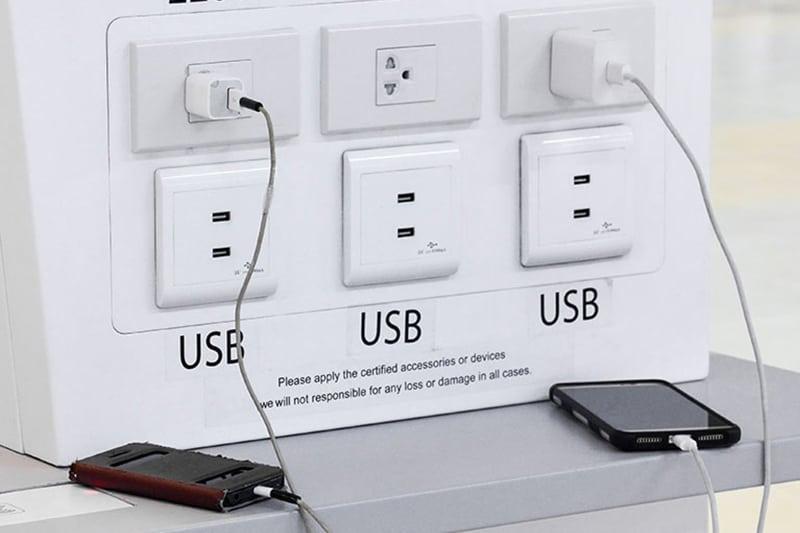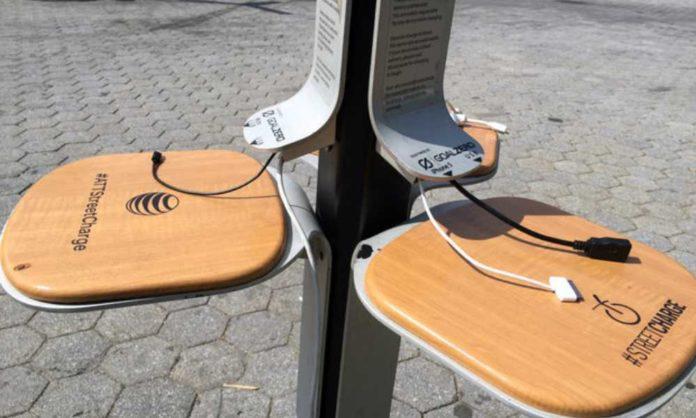Do you have vacation plans this holiday season? You’ll undoubtedly have a cell phone or some other portable device with you, and you’ll eventually need to recharge it. If your battery is low, be aware that charging your electronic device at a free USB port can have unfavorable results. These charging stations can be located near airport gates, in hotels, and other travel-friendly sites. A new form of cyber theft called “juice jacking” may target you.

Cybersecurity professionals have issued a warning that thieves may install malware onto public USB charging stations in order to gain unauthorized access to electronic devices while they are being charged. A device can be locked by malware introduced through a contaminated USB connection, and it can export user information and passwords to the offender. The data can be sold to other bad guys or used by criminals to access online accounts. Such public charging stations can be found in Pakistan at Dolmen Mall Clifton, shopping markets and eve hospitals like Southcity.
How Does Juice Jacking Work?
The way USB ports are made permits juice jacking. They are primarily used for charging phones, but they can also be used for data transfer. Because of this, each time you plug your phone in to charge, you could be allowing data transfers. Due to the fact that the majority of phones now require permission before beginning data transfers, it is viewed as a possible threat rather than a serious and genuine danger. This indicates that any hack would be stopped right away if the user is paying attention. It is uncertain whether or not hackers will ever discover a method to get around this security.
What Happens If You Get Juice Jacked?
One of the first things that might happen is data theft. What is stored on your phone will obviously determine the extent of any damage if data is stolen. The vast majority of individuals don’t just have their contacts and images, they have their social media. Yet, juice jacking might be used to easily specifically target people who are known to have valuable information.
The second possibility might be malware. Anybody could potentially be at risk from malware. A keylogger that logs passwords typed into your phone can be designed to be injected into a charging station. Moreover, malware can be installed to track the movements of your phone or tape any phone calls. You can even be completely locked out of your phone using it.
Is Juice Jacking A Legitimate Threat?

Juice jacking is not something the typical individual will encounter. Intelligence officials have shown that it poses a hazard, but no actual attack has yet to be seen in the wild.
Having said that, it’s crucial to remember that theoretical tactics frequently start being employed later, which is why security researchers show assaults like this.
Juice jacking is not something the typical individual will encounter. Intelligence officials have shown that it poses a hazard, but no actual attack has yet to be seen in the wild.
Having said that, it’s crucial to remember that theoretical tactics frequently start being employed later, which is why security researchers show assaults like this.
How You Can Prevent It?
Avoiding juice jacking is simple. Instead, use electrical outlets. It is therefore safe to carry your own charger and use public power outlets. A battery bank or spare battery can also be purchased. Batteries for backup and battery banks are inexpensive. Some power banks have the capacity to recharge a phone for more than a week. It goes without saying that these gadgets are useful even if you are not attempting to avoid fraudulent charging stations.
You can also invest in a charge-only cable. There are charge-only USB cables available for purchase. They can therefore only be used to transfer power, not data that could be potentially damaging. It would be risk-free for you to utilize a malicious port as long as you are carrying such a cable.
What do you think about this? Let us know in the comments below.
Stay tuned to Brandsynario for more news and updates.












































